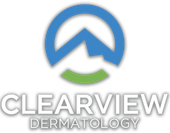Allergies and Skin Conditions: What Your Skin Is Trying to Tell You
Key Points:
- Your skin often serves as the first alert system for underlying allergies.
- Contact dermatitis can develop suddenly, even from products you’ve used for years.
- Hives aren’t just stress-related – they’re frequently tied to specific allergens.
- Allergy testing can be a game-changer for chronic skin issues.
- Colorado’s unique environment creates specific allergy challenges for skin health.
How Allergies Show Up on Your Skin
The skin is more than just a protective layer—it’s often the first place signs of an allergy appear. Red, inflamed patches or unexplained hives may signal that your body is reacting to something in your environment, diet, or daily routine.
In Colorado, factors such as high altitude, dry air, and seasonal allergens can make the skin especially vulnerable. Understanding these connections is key to managing symptoms and protecting your skin long term.
Contact Dermatitis: A Common Skin Reaction
What Happens When It Develops
Contact dermatitis occurs when the skin responds to an irritant or allergen. There are two main forms:
- Irritant contact dermatitis – caused by exposure to harsh substances like bleach or soap.
- Allergic contact dermatitis – develops when the immune system reacts to a specific allergen, sometimes after months or years of tolerance.
Frequent Triggers in Colorado
- Outdoor allergens: Poison ivy, oak, and certain pollens or plants.
- Everyday exposures: Fragrances, nickel in jewelry, and preservatives in skincare.
- Weather fluctuations: Shifting between warm and cold weather often leads to rapid changes in skincare routines, which can irritate sensitive skin
Recognizing the Symptoms
This condition usually appears as red, itchy patches on the area of contact. The location often helps identify the cause—for example, a rash where jewelry touches the skin or irritation along the hairline from a hair product.
Hives: More Than a Stress Response
What Triggers Hives?
Hives, or urticaria, result from histamine release in the skin. While stress can worsen outbreaks, hives are often tied to:
- Foods: Shellfish, nuts, eggs, and sometimes food additives or dyes.
- Environmental allergens: Pollen, dust mites, mold, and pet dander.
- Physical triggers: Cold, heat, pressure, and even sunlight.
What They Look Like
Hives appear as raised, red or pink welts that may move from one part of the body to another. They can vary in size and may last minutes, hours, or in chronic cases, weeks at a time.
The Link Between Eczema and Allergies
Eczema often overlaps with allergies and asthma, a pattern sometimes called the “atopic triad.” Allergens such as dust, pollen, and pet dander frequently worsen eczema symptoms. Colorado’s low humidity adds another layer of difficulty, weakening the skin barrier and allowing allergens to trigger more severe flare-ups.
Why Allergy Testing Matters
When to Consider Testing
Testing may be beneficial if:
- Skin issues are chronic or unexplained.
- Symptoms follow a seasonal pattern.
- Reactions have developed later in life.
- Family history includes allergies or skin conditions.
Types of Testing
- Patch testing: Helps identify contact allergens by placing controlled exposures on the skin.
- Skin prick or blood testing: Detects sensitivities to environmental and food allergens.
Testing provides clarity, allowing treatments to be targeted instead of trial-and-error based.
Colorado’s Unique Allergy Challenges
- Altitude effects: Dry air and strong sun exposure can intensify allergic skin reactions.
- Extended allergy seasons: Tree pollens may start as early as February, while grass and weed pollens linger well into fall.
- Dry climate complications: A compromised skin barrier makes the skin more reactive to allergens and irritants.
Managing Allergies and Protecting Your Skin
Identify Your Triggers
A skin diary can help reveal connections between flare-ups and activities, foods, or environmental exposures.
Keep Skin Care Simple
Opt for fragrance-free and hypoallergenic products. Introduce new products one at a time and patch test before broader use.
Know When Professional Care Is Needed
Over-the-counter creams and antihistamines can help mild cases. If reactions spread, worsen, or persist,
professional care is essential.
Treatment Options That Work
- Topical care: Prescription creams and barrier-repair moisturizers calm inflammation and protect the skin.
- Medications: Oral antihistamines, corticosteroids, or immunosuppressants may be used for more severe cases.
- Allergy management: Avoidance strategies, targeted medication, and allergy immunotherapy may provide long-term relief.
At
Clearview Dermatology, we also offer
cosmetic solutions to minimize
scarring or discoloration caused by chronic allergic reactions.
Frequently Asked Questions
Can adults develop new allergies?
Yes. Allergies can appear at any stage of life.
Why do allergies seem worse in Colorado?
High altitude, dry air, and unique allergens make reactions stronger and more frequent.
Are natural products safer for sensitive skin?
Not always. Many natural ingredients, including essential oils and plant extracts, can trigger strong allergic responses.
How long do allergic reactions last?
Contact dermatitis often resolves in days to weeks once the trigger is removed. Hives can fade within hours or persist for months in chronic cases.
Does stress make allergic reactions worse?
Stress does not cause allergies but can intensify flare-ups and increase their frequency.
About Clearview Dermatology
Our dermatology team specializes in diagnosing and treating allergy-related skin conditions. We collaborate with allergists when appropriate to ensure comprehensive care.
Our Locations:
- Candelas (Arvada):
720-797-9184 |
14789 W. 87th Parkway, Arvada, CO 80005
- Bergen Park (Evergreen):
720-694-8550 |
32135 Castle Court, Ste 202 Evergreen, CO 80439
- Dakota Ridge (Littleton): 720-909-8154 | 13402 W Coal Mine Ave, Ste 360 Littleton, CO 80127
The Bottom Line
Your skin often reflects your body’s internal health, and allergic reactions are one of the most common examples. By identifying triggers and working with experienced providers, you can move beyond symptom relief to long-term solutions.
Clearview Dermatology is here to help uncover the causes of allergy-related skin issues and create a plan tailored to your needs.
Disclaimer: The information provided on this blog is for general informational purposes only and is not intended as, and should not be considered, medical advice. All information, content, and material available on this blog are for general informational purposes only. Readers are advised to consult with a qualified healthcare professional for medical advice, diagnosis, or treatment. The author and the blog disclaim any liability for the decisions you make based on the information provided. Always seek the advice of your physician or other qualified health provider with any questions you may have regarding a medical condition.





